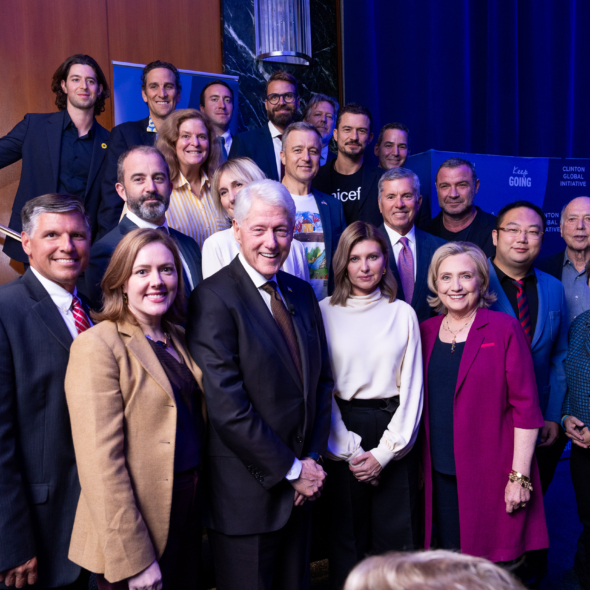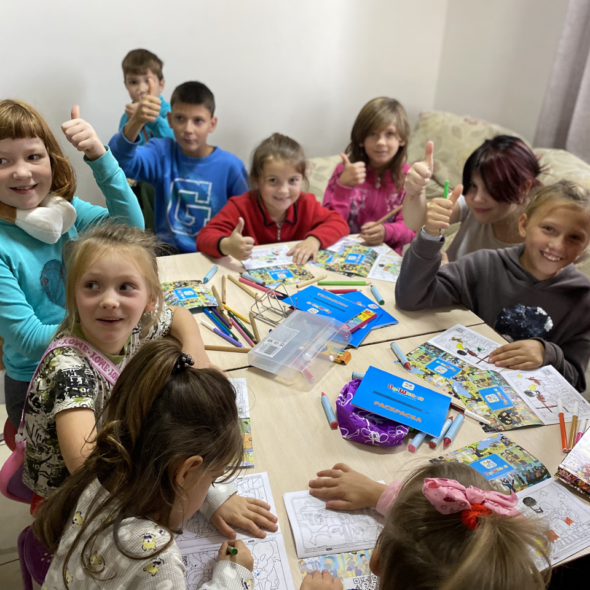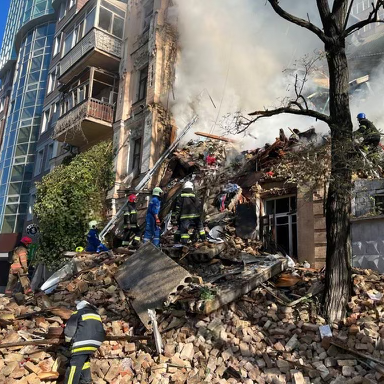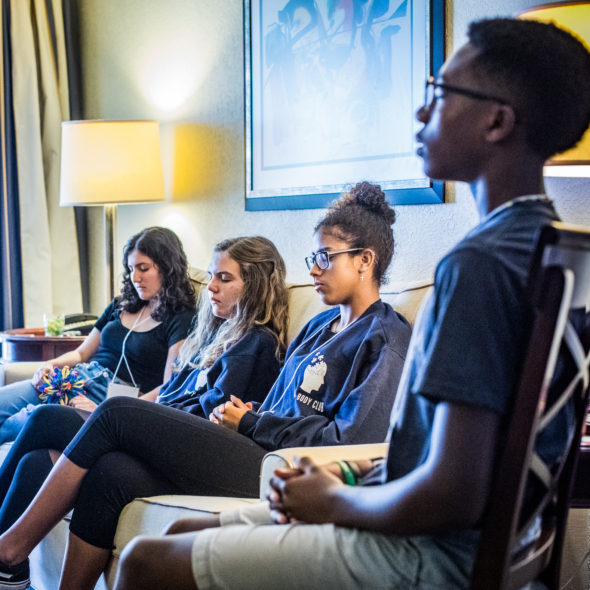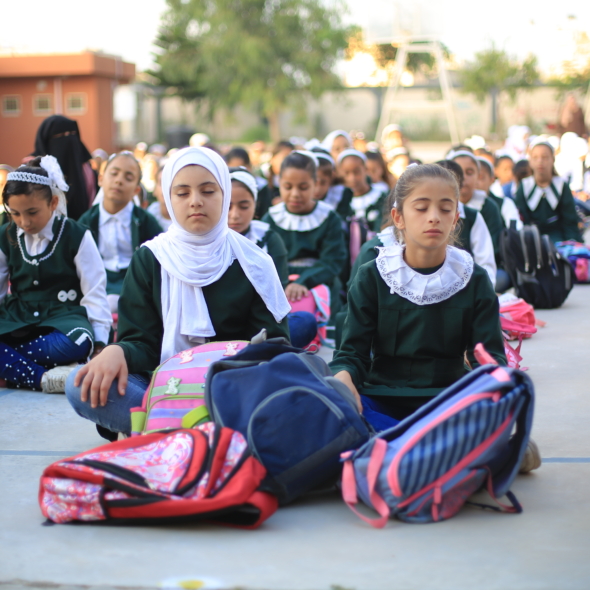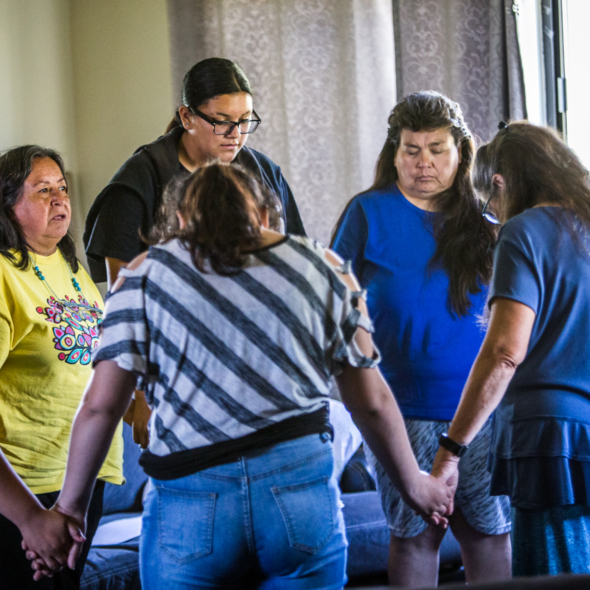Young people are facing more challenges today than ever before. Chronic stress caused by the threat of mass and school shootings, natural and climate-related disasters, armed conflict, pandemic-related pressures, social unrest, and uncertainty about the future can have severe impacts on child and adolescent physical and mental health. Trauma can also be caused by difficult situations in everyday life, such as the loss of a loved one, the divorce or separation of parents, bullying, and major life transitions like moving homes or schools.
Gun violence is a significant source of stress for youth today. In the United States, firearms are the leading cause of death for children and teens (ages 1 to 19), and 1 in 4 mass shooting victims between the years of 2009 and 2020 were children and teens.
Pandemic-related stressors have also taken a serious toll on youth and adolescent mental health. An estimated 1,134,000 children globally experienced the death of one or more primary caregivers from March 1, 2020 to April 30, 2021. 71% of parents reported that the COVID-19 pandemic has taken a toll on their child’s mental health.
Social unrest and war also have a disproportionately large impact upon children. Conflict in Ukraine, for instance, has resulted in the displacement of an estimated 4.3 million children, and they are also at a disproportionately high risk of human trafficking and exploitation.
These various stressors help explain why childhood post-traumatic stress disorder, depression, and anxiety are at all-time highs. Our research, published in peer-reviewed journals, has repeatedly demonstrated an 80% or greater reduction in the number of children who qualify as having post-traumatic stress disorder after completing a sequence of Mind-Body Skills Groups. In another study, 72% of adolescents treated for depression in primary care reported that Mind-Body Skills Groups changed their lives.
How do we work with youth?
We work with school systems, clinicians, educators, and child advocates to create comprehensive mind-body medicine programs to help heal past trauma, manage ongoing stress, and build resilience against future trauma. We collaborate with school administrators, parents, and other trusted leaders to learn about each school or community’s culture, challenges, and organizational goals. Then, we adapt our model to each community’s needs, creating in-person, online, and/or asynchronous programming and resources that can be easily integrated into ongoing classroom and extracurricular activities. We help communities cultivate “champions” to raise the profile of this work and encourage wider participation.
Our work with youth
After the 2018 school shooting at Marjory Stoneman Douglas High School (MSD) in Parkland, FL, we started training teachers, school counselors, parents, and students to bring our comprehensive model of self-care and mutual support to Broward County. We initially focused our efforts on MSD, but the success of our work there quickly attracted interest from other schools in the district. Over the last four years, we have trained 650 Broward County teachers, social workers, counselors, first responders, and youths who have gone on to share our model with 51,000 children and adults. Over the past two years, we have focused our efforts on schools that have chronically underperformed due to challenges like violence and lack of resources. We’ve also catalyzed the development of youth-led programs. Students at MSD embraced CMBM’s model in the peer counseling program and have participated enthusiastically in the after-school Mind-Body Ambassadors club led by MSD teacher and CMBM Faculty member, Diane Wolk-Rogers, and MSD parent Ellen Fox Snider.
We’ve also worked with the Pine Ridge Indian Reservation in South Dakota, at the invitation of an Oglala Lakota Native American elder, to combat stress, trauma, and youth suicide. CMBM held a number of trainings and workshops in the community. The Little Wound School secured a grant from the Administration of Native Americans that funded a lasting partnership with CMBM. The grant enabled CMBM to train counselors, therapists, teachers, and youth in seven tribal schools. Incorporating Oglala Lakota ancestral wisdom and cultural practices, we’ve adapted the CMBM model to suit the unique needs and contexts of the community.
In 2022, we also began working with Ukrainian psychologists and therapists to bring healing to the war-torn region. A two-day emergency training program has helped bring mind-body skills to participants living in Ukraine, Poland, Ireland, and those in other countries working with Ukrainian refugees. Given the mass displacement of Ukrainian children, these emergency training programs have also placed special emphasis on how mind-body skills can be used with youth.
